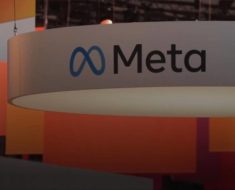
Chat GPT founder OpenAI has developed a way to track incremental progress towards development artificial general intelligence (AGI).
The company published this new five-level classification system on Tuesday internally with its employees with plans to release it to investors and the public by Thursday.
The company says that OpenAI is presently at level 1 AI, which indicates that it’s capable of conversational interaction with people. The second level involves systems that can solve problems with as well as a human with doctorate-level education. Furthermore, the third level includes systems that can solve problems over time—in this case a matter of several days. The difference between the third and the fourth levels is that AI can innovate. At the top tier, or level 5, artificially intelligent systems can do the work of an organization.
OpenAI says that the classification system is a work in progress and may change with feedback.
In October, Sam Altman, CEO of OpenAI, and Mira Murati, Chief Technology Officer, said that artificial general intelligence will be reached within the next 10 years.
“We’re big believers that you give people better tools, and they do things that astonish you,” Altman said. “And I think AGI will be the best tool humanity has yet created.”
In March, NVIDIA (NASDAQ: NVDA) CEO Jensen Huang mentioned that if he provided an AI with every conceivable test, created a comprehensive list of these tests, and presented it to the computer science industry, he believes that in five years, AI would excel at all of them.
Read more: Verses AI onboards chief product officer in push for AI product Genius
Read more: Robots take over 2024 World Artificial Intelligence Conference
AI could pass human intelligence by 2025
Tesla Inc (NASDAQ: TSLA) and X (NASDAQ: TWTR) CEO Elon Musk agrees.
He suggested that AI could surpass the intelligence of the smartest human beings as soon as 2025 or by 2026. He added that the “total amount of sentient compute” — a concept that may refer to AI thinking and acting independently — will exceed all humans in five years.
Meanwhile, Vancouver-based artificial intelligence startup VERSES AI Inc. (CBOE: VERS) (OTCQB: VRSSF) goes further in defining the difference between AI and AGI. It defines artificial intelligence devices and software like Chat GPT and Google’s Gemini as narrow AI, or weak AI.
It’s a type of intelligence designed and trained to perform a specific task or a limited range of tasks. Unlike AGI, which has the ability to understand, learn, and apply knowledge across a wide variety of contexts and problems, narrow AI operates within predefined parameters and is not capable of generalizing its knowledge beyond its specialized function.
Verses AI is working entirely on developing AGI. It defines AGI as a system capable of understanding, learning, and applying knowledge across a wide range of tasks at a level comparable to human intelligence.
The difference between narrow AI and AGI is that the latter possesses the flexibility and cognitive capabilities to perform any intellectual task that a human can do. Verses AI focuses on creating systems that not only process information but also adapt, reason, and make decisions autonomously, aiming to revolutionize industries and improve everyday life through advanced AI technologies.
.
Verses AI is a sponsor of Mugglehead news coverage
.


